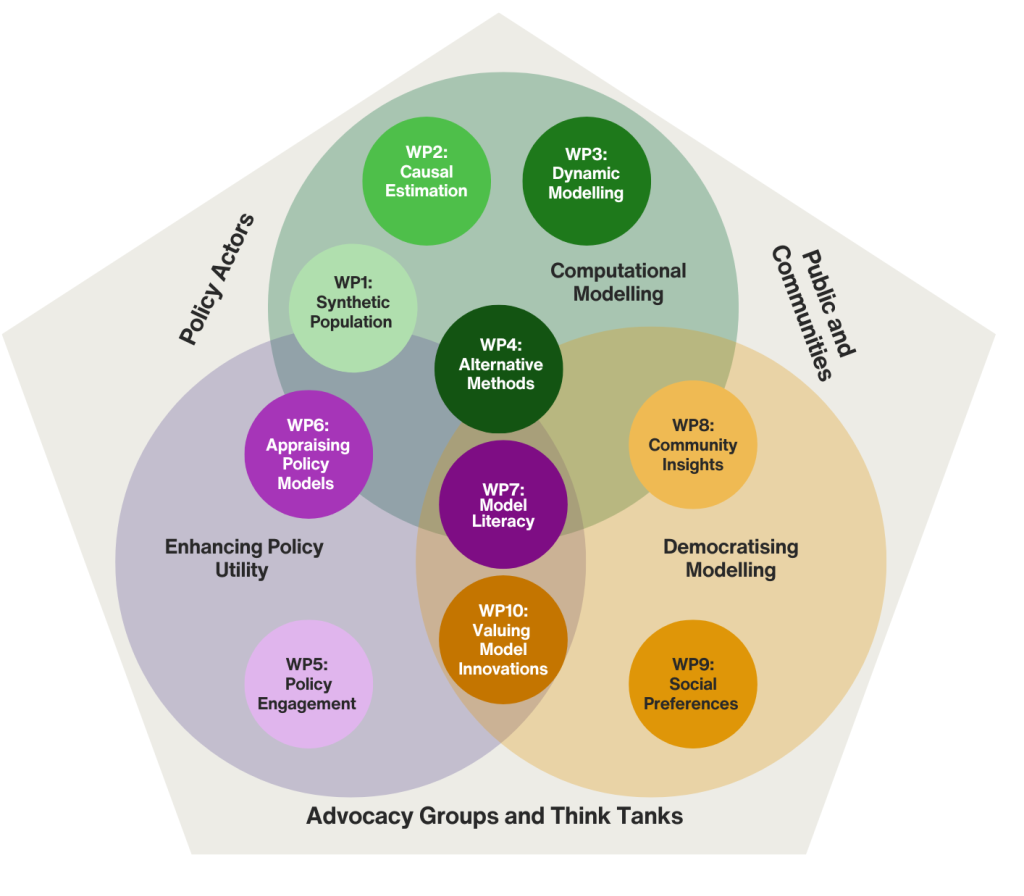Our work is structured around three themes which are in turn supported by work packages.
Theme leads have strategic oversight of all work packages within their themes.

Theme Lead: Professor Matteo Richiardi, University of Essex
This research is focused on providing new innovations in population health modelling capacity.
We harness existing modelling assets with complementary capabilities to develop new policy modelling infrastructure.
We integrate advances in machine learning and causal analysis to model the health effects of diverse policies affecting people’s economic situation e.g. income, inheritance, skills, jobs, pension age and housing.
Dynamic spatial microsimulation allows us to consider cumulative effects over time and space at individual, subgroup and small local area levels.
Theme Lead: Julian Cox, Greater Manchester Combined Authority
There is a recognised enthusiasm and innovation in the use of modelling for public policy.
We seek to build on this to develop a comprehensive understanding of the diverse models currently employed in public policy and assess their potential impact.
With the increasing use of computational models, there is also a need for strategic upskilling to ensure their effective and responsible use.
Our ambition is to integrate policy and academic processes, map the existing policy modelling eco-systems, and offer training & capacity-building programs to enable policy leaders, stakeholders, researchers, and wider audiences to critically engage with policy models and outputs.
Theme Lead: Dr Clementine Hill O’Connor, University of Glasgow
Our focus is on exploring the ethical and democratic implications of model-informed policy decisions. This is closely related to the wider ongoing public debates about the use of algorithms and artificial intelligence (AI) in governance.
We aim to tackle the issue of disciplinary norms that lead to 'blind spots,' potentially excluding certain social groups or entrenching specific worldviews.
Building on SIPHER’s community panels scrutiny model, which highlighted the value of lay perspectives, we are developing and testing innovative approaches to incorporate lived experiences of intersectional economic and health disadvantages into policy modeling discussions.
We will explore citizens' societal values and their preferences for prioritising policy goals, enhancing our understanding of how different modeling approaches resonate with diverse audiences.

